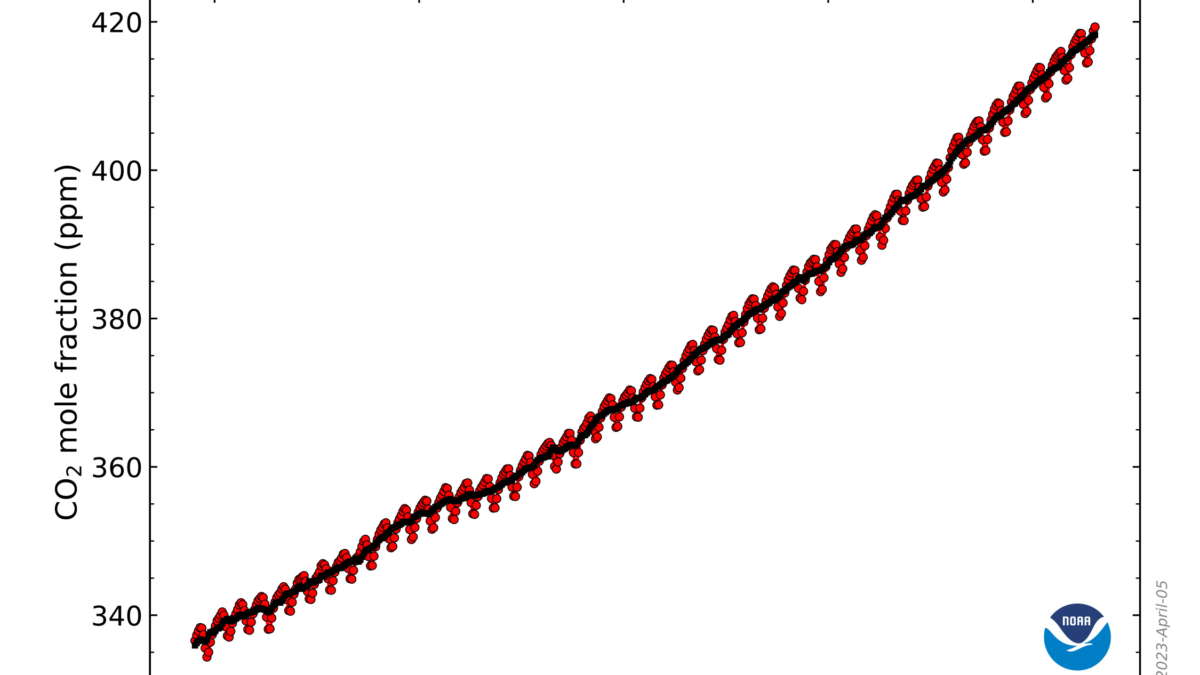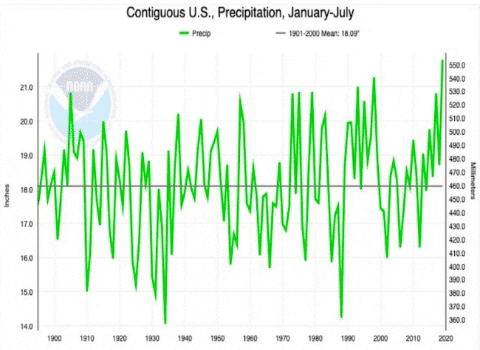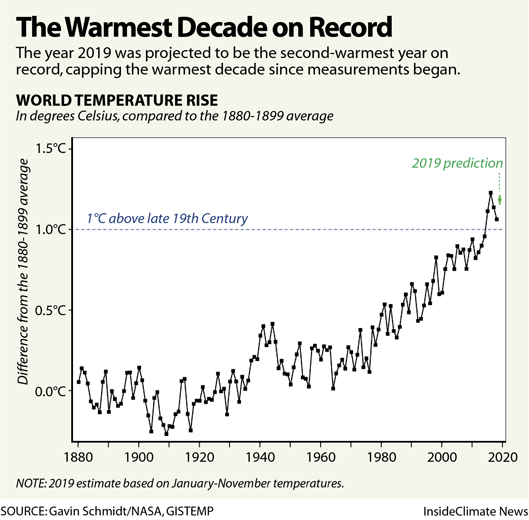Siberia hit by unprecedented wildfires – 1.5 million hectares burn after driest weather in 150 years – “Everything is on fire”
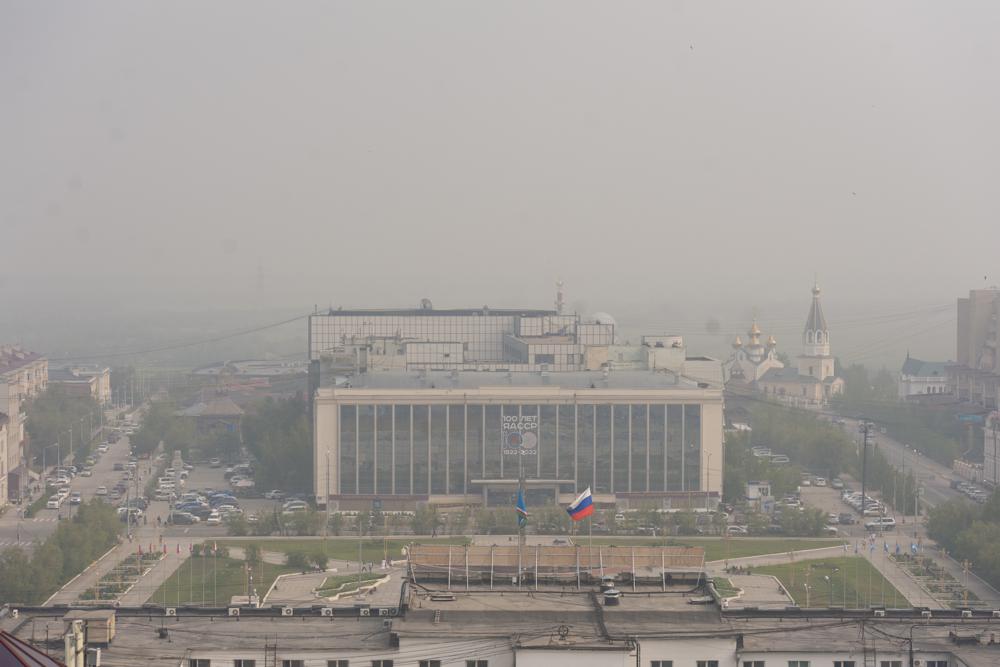
By Andrew Roth
20 July 2021
MOSCOW (The Guardian) – Every morning and evening for the last few days, shifts of young villagers have headed out into the taiga forest around Teryut with a seemingly impossible task: to quell the raging fires that have burned closer and closer for a month, shrouding this remote eastern Siberian village in an acrid haze.
So far, little has worked. Amid the worst wildfire season in memory, locals have vowed to defend their village to the last, sending away small children for their protection from the smog while they stay on to fight back the flames.
“For a month already you can’t see anything through the smoke,” said Varvara, a 63-year-old pensioner from Teryut, a village in the Oymyakonsky district. “We have already sent the small children away. And the fires are very close, just 2km [1.2 miles] from our village.”
The extraordinary forest fires, which have already burned through 1.5m hectares (3.7m acres) of land in north-east Siberia have released choking smog across Russia’s Yakutia region, where officials have described this summer’s weather as the driest in the past 150 years. And that follows five years of hot summers, which have, according to villagers, turned the surrounding forests and fields into a tinderbox.
Varvara said their main hope was that this week brought heavy rains to their region, which is located more than 400 miles from the city of Yakutsk across mostly impassable taiga, or snow forest.
“Emergency workers have come and villagers are also fighting the fires but they can’t put them out, they can’t stop them,” she said by telephone. “Everything is on fire.”
More than 50 settlements have been covered in smog, which has periodically halted operations at Yakutia’s main airport and disrupted river traffic.
The unprecedented scale of the fires has prompted locals to join auxiliary fire brigades.
“These are our homes, our forests, and our people,” said Ivan Nikiforov, a resident of Yakutsk, the capital of Yakutia, who has joined a volunteer fire brigade for the first time this year. “Our relatives are breathing smog. I couldn’t stand by.”
“It’s a thick smoke, yellow,” said Nikiforov, describing the fires near Magaras, a village about 100km from the capital Yakutsk. “I don’t know how the locals could stand it. It will probably have health effects for them in the future. People are both depressed and angry. This situation should not have been allowed to take place.” […]
“There never used to be summers with such large fires,” said Nikolai Verkhovov, a native of Srednekolymsk, a village on the River Kolyma more than 750 miles from Yakutsk. “But last year a village in my district nearly burned down.” He suggested that budget cuts to forest ranger services and corruption could play a role in the fires.
“In Yakutsk itself the fire season has been growing exponentially since 2018,” he said. “This year has been unbelievably awful. Enormous parts of the forest are on fire. It’s so smoky it is hard to breathe and your eyes tear up.” [more]
‘Everything is on fire’: Siberia hit by unprecedented burning
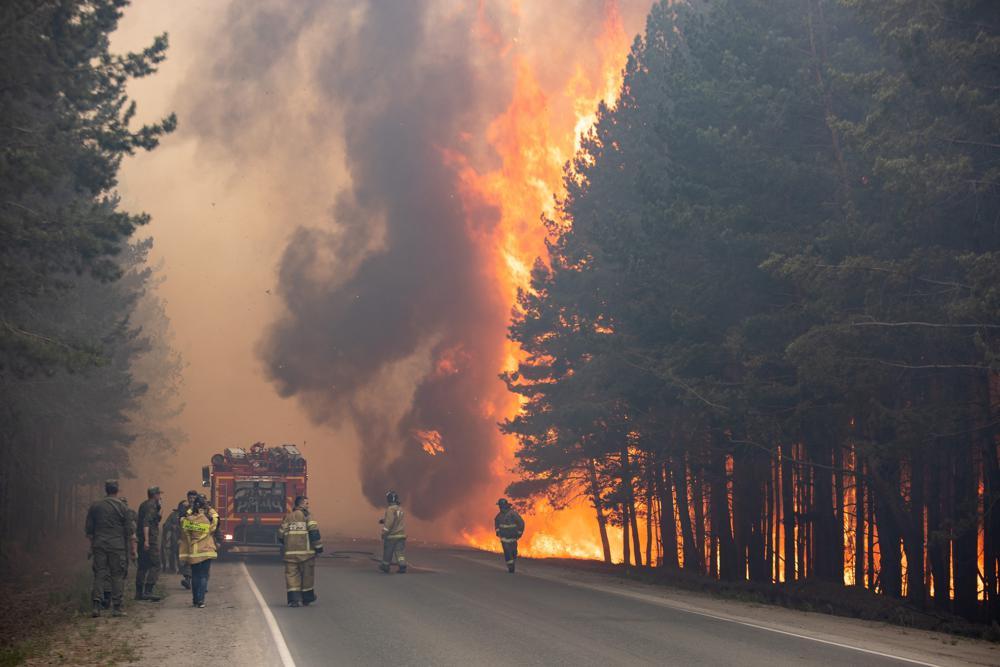
EXPLAINER: What’s fueling Russia’s ‘unprecedented’ fires?
By Daria Litvinova and Vladimir Isachenkov
22 July 2021
MOSCOW (AP) – Thousands of wildfires engulf broad expanses of Russia each year, destroying forests and shrouding regions in acrid smoke.
Northeastern Siberia has had particularly massive fires this summer amid record-setting heat. Many other regions across the vast country also have battled wildfires.
Some factors behind Russia’s endemic wildfires and their consequences:
RECORD HEAT
In recent years, Russia has recorded high temperatures that many scientists regard as a clear result of climate change. The hot weather has caused permafrost to melt and fueled a growing number of fires.
The vast Sakha-Yakutia region of Siberia has had a long spell of extremely hot and dry weather this summer, with temperatures reaching 39 degrees Celsius (102 degrees Fahrenheit) and setting records for several days. The heat wave helped spark hundreds of fires, which so far have scorched more than 1.5 million hectares (3.7 million acres) of land, making it the worst-affected region in Russia.
The fires have shrouded Yakutia’s cities, towns and villages in thick smoke, forcing authorities to briefly suspend flights at the regional capital’s airport. The Defense Ministry deployed transport planes and helicopters to help douse the flames.
Fedot Tumusov, a member of the Russian parliament who represents the region, called the blazes “unprecedented” in their scope.
MONITORING DIFFICULTIES
The forests that cover huge areas of Russia make monitoring and quickly spotting new fires a daunting task.
In 2007, a federal network to spot fires from aircraft was disbanded and had its assets turned over to regional authorities. The much-criticized change resulted in the program’s rapid deterioration.
The government later reversed the move and reestablished the federal agency in charge of monitoring forests from the air. However, its resources remain limited, making it hard to survey the massive forests of Siberia and the Far East.
NEGLECT OF FIRE SAFETY RULES
While some wildfires are sparked by lightning, experts estimate that over 70% of them are caused by people, from carelessly discarding cigarettes to abandoned campfires, but there are other causes.
Authorities regularly conduct controlled burns, setting a fire to clear the way for new vegetation or to deprive unplanned wildfires of fuel. Observers say such intentional burns often are poorly managed and sometimes trigger bigger blazes instead of containing them.
Farmers also use the same technique to burn grass and small trees on agricultural lands. Such burns regularly get out of control.
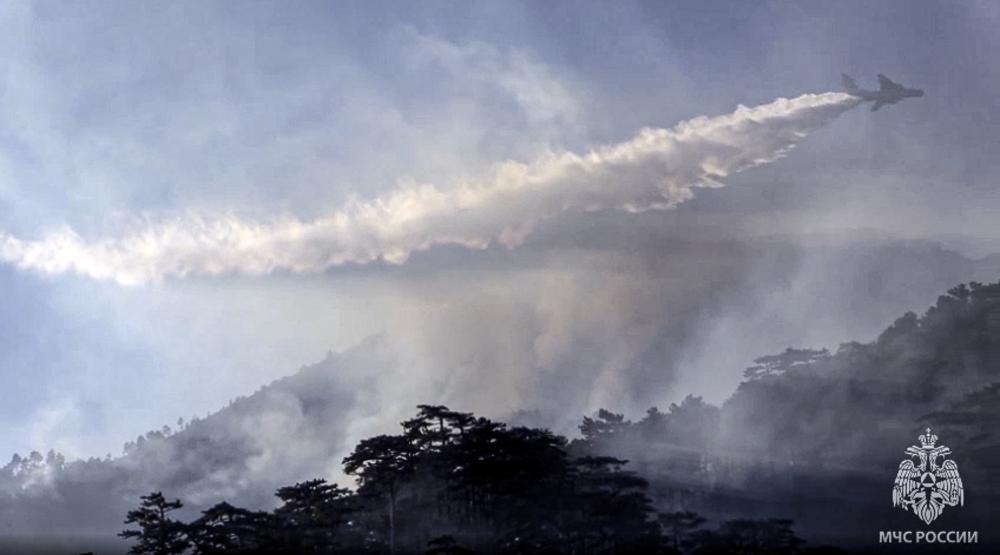
ARSON
Activists and experts say that fires are often set deliberately to cover up evidence of illegal lumbering or to create new places for timber harvesting under the false pretext of clearing burned areas.
Activists in Siberia and the Far East allege such arson is driven by strong demand for timber in the colossal Chinese market, and they have called for a total ban on timber exports to China.
Officials have acknowledged the problem and pledged to tighten oversight, but Russia’s far-flung territory and regulatory loopholes make it hard to halt the illegal activity.
Critics blame the 2007 forest code that gave control over timberlands to regional authorities and businesses, eroding centralized monitoring, fueling corruption and contributing to illegal tree-cutting practices that help spawn fires.
CONTROVERSIAL REGULATIONS
Russian law allows authorities to let wildfires burn in certain areas if the potential damage is considered not worth the costs of containing them.
Critics have long assailed the provision, arguing it encourages inaction by authorities and slows firefighting efforts so a blaze that could have been extinguished at a relatively small cost is often allowed to burn uncontrolled.
“They eventually have to extinguish it anyway, but the damage and the costs are incomparable,” said Mikhail Kreindlin of Greenpeace Russia.
LONG-TERM CONSEQUENCES
In addition to destroying trees, wildfires also kill wildlife and pose a threat to human health by polluting the air.
Carbon emissions from fires and the destruction of forests, which are a major source of oxygen, also contribute to global warming and its potentially catastrophic impact.
This year’s fires in Siberia already have emitted more carbon than those in some previous years, according to Mark Parrington, a senior scientist at the European Centre for Medium-Range Weather Forecasts.
He said the peat fires that are common in Siberia and many other Russian regions are particularly harmful in terms of emissions because peat has been absorbing carbon for tens of thousands of years.
“Then it’s releasing all that carbon back into the atmosphere,” Parrington said. [more]
